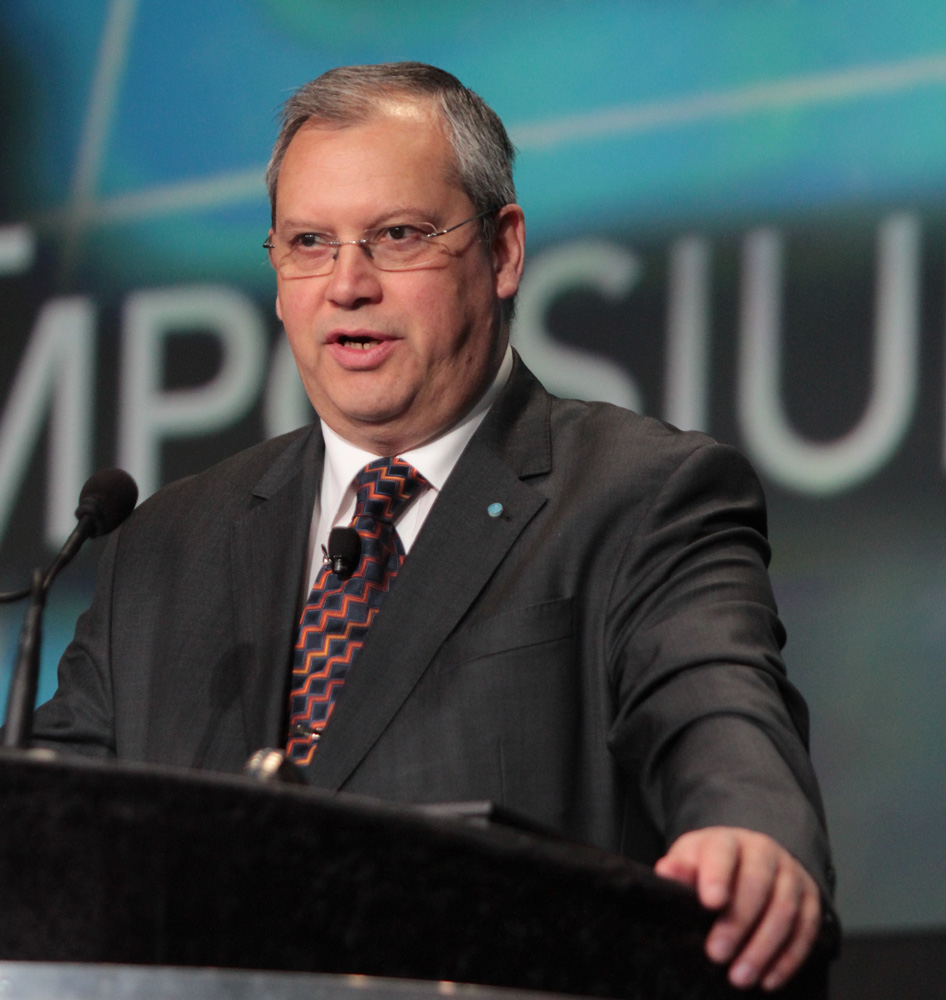Space Symposium
Agency Leaders Discuss Global Collaboration
Written by: developer
 Moderator Dr. Dumitru Dorin Prunariu, chairman, UNCOPUOS (pictured, right), set the stage for the discussion by saying that international cooperation and collaboration are imperative given the current congested and contested environment of outer space.
Moderator Dr. Dumitru Dorin Prunariu, chairman, UNCOPUOS (pictured, right), set the stage for the discussion by saying that international cooperation and collaboration are imperative given the current congested and contested environment of outer space.
Panelists made the following comments:
Dr. Chummer Farina, vice president, Canadian Space Agency: Canada's investment in space is a matter of necessity, which is why we have renewed our commitment to the International Space Station (ISS) until 2020. We feel the returns made from collaborative investments in space are far greater than those achievable through strictly domestic projects. Pictured, below, far right.
The Honorable Lori B. Garver, deputy administrator, National Aeronautics and Space Administration (NASA): What began with the Cold War has now become a truly global effort. The ISS is undoubtedly the greatest technological achievement of our time. Now, we applaud the work of commercial spaceflight providers that will replace the transportation capabilities of the Space Shuttle. International collaboration is critical to America and to NASA and we intend to remain a leader in these endeavors. Regarding human spaceflight, we believe that we have realigned our program and are back on track. Pictured, below, second from left.

Kiyoshi Higuchi, vice president, Japan Aerospace Exploration Agency (JAXA): The Japan Aerospace Exploration Agency (JAXA) looks to collaborate in space at global, regional and bilateral levels. The Asia-Pacific Regional Space Agency Forum is held annually to promote regional collaboration in space technology development. Pictured, above, second from right.
Professor Keith Mason, senior advisor, UK Space Agency, and chair, UK Space Board: A UK satellite launched on a U.S. rocket says we can decrease the cost of accessing space by increasing the volume and frequency of access. We see two areas especially ripe for international collaboration: the development of future launch vehicles and the exploitation of space. Pictured above, far left.

Dr. Francisco Javier Mendieta-Jimenez, general director, Mexican Space Agency (AEM): The Mexican Space Agency, newly established in November 2011, has two main purposes: to attend to societal needs, such as support following natural disasters, and to foster the Mexican aerospace industry. Pictured, above, right.
Dr. Gerrit (Ger) Nieuwpoort, director, Netherlands Space Office: For a small country like the Netherlands, international cooperation is the only way to access space. To fully reap the benefits of space, we must have an open global market. The trend of the commercialization of space activities can be fostered by international cooperation. Pictured, above, left.
Dr. Johann-Dietrich Wörner, chairman of the executive board, German Aerospace Center (DLR): While we are aware of the global nature of today's challenges, international cooperation is still limited. Space situational awareness is a global challenge that needs global cooperation. Space needs to involve public, commercial and national, bilateral and multinational efforts. As long as we do not have a global government, we should not have a global authoritative space agency. Pictured, above, center.
See photos here. See video here.

This article is part of Space Watch: June 2012 (Volume: 11, Issue: 6).


